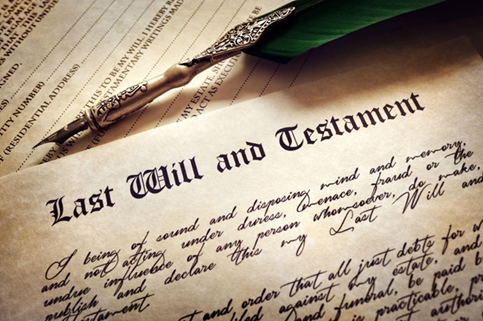In my client consultations as an estate planning attorney, I often work with people who want to name their son or daughter as the Successor Trustee of their family trust. This is all well and good, at least in principle — except for the fact that the son or daughter in question is currently a toddler. The problem is obvious: You cannot name a minor child as your successor trustee or assign that child other duties outlined in your estate plan. Even if you could, it would prove a disastrous move if you died the day after finalizing the plan, because you would now have a toddler administering your estate, a legal and practical impossibility which will lead to a court administering your estate through probate.
You may already be acutely aware that you should create an estate plan sooner rather than later. Important instruments such as wills, advanced directives, power of attorney assignments, and trust creation need to be firmly in place before you and your loved ones need them. Since you cannot predict when a sudden catastrophe might take place, the safest time to get started on your estate plan is right now. As you establish these contingency plans for the future, however, keep in mind that they may need to go into effect tomorrow. As such, create an estate plan for right now, not for five years in the future.
Your estate plan can still create long-term provisions while retaining its relevance in the here and now. For instance, that toddler you want to look after can benefit from the formation of a trust set to go into effect when the child attains a certain age or passes other critical milestones. The key is to create an estate plan that can accomplish your goals for you even if a disaster strikes tomorrow. Name a successor trustee who is fully capable of administering your trust from day one. Put all the necessary documents into place, with all the necessary restrictions and permissions, and make any other formal assignments to ensure that your estate plan administration proceeds smoothly.
You can always return to your estate plan one, five, or ten years from now (or whenever you wish) to make corrections and adjustments. If you have come to feel uncomfortable with your choice of agent, you can replace that agent for someone else. If you want to transfer the Successor Trustee role to your child now that the child has reached adulthood, you’re free to do so. You can alter conditions of your estate plan documents to perform any other changes you like.
Even if you don’t have any burning desire to make such changes, you should review your estate plan at least once a year to make certain it remains applicable to your current situation. An estate plan is meant to serve as an ever-evolving tool, not a “set it and forget it” device. Your circumstances, and those of your family members or trustees, will naturally change over time, and your estate plan must change in response. These changes can occur with such subtlety that you might not ever think about them unless you review the documents periodically.
Another tip: Create your estate plan so that your Successor Trustee can utilize to its optimal use. For instance, avoid including “if/then” statements/scenarios in your estate plan because you will never be able to address every “if/then” scenario that might occur. These cut-and-dried instructions to a successor trustee leave insufficient room to accommodate subtleties in future circumstances. You should craft your estate plan documents so that your Successor Trustee has the necessary discretion to do whatever is best for a particular situation.
Finally, attempting to micromanage an estate beyond the grave because you have concerns about who you have selected in areas of responsibility is impossible. Instead, you need to select a Successor Trustee, agent(s), and others whose judgement you trust in such matters. If do not trust your chosen individuals, you need to replace them with someone in whom you have more confidence at the present time, with the understanding that your revised assignment may also need to change in accordance with ever-evolving life circumstances.
Click HERE to learn why recording your Estate Plan is not a good idea in this modern information age, or HERE for ideas on compiling an Emergency File as another important piece of your Estate Plan.
© 2020 Matthew W. Harrison and Harrison Law, PLLC All Rights Reserved
This website and article have been prepared by Harrison Law, PLLC for informational purposes only and does not, and is not intended to, constitute legal or financial advice. The information is not provided in the course of an attorney-client relationship and is not intended to substitute for legal advice from an attorney licensed in your jurisdiction.






